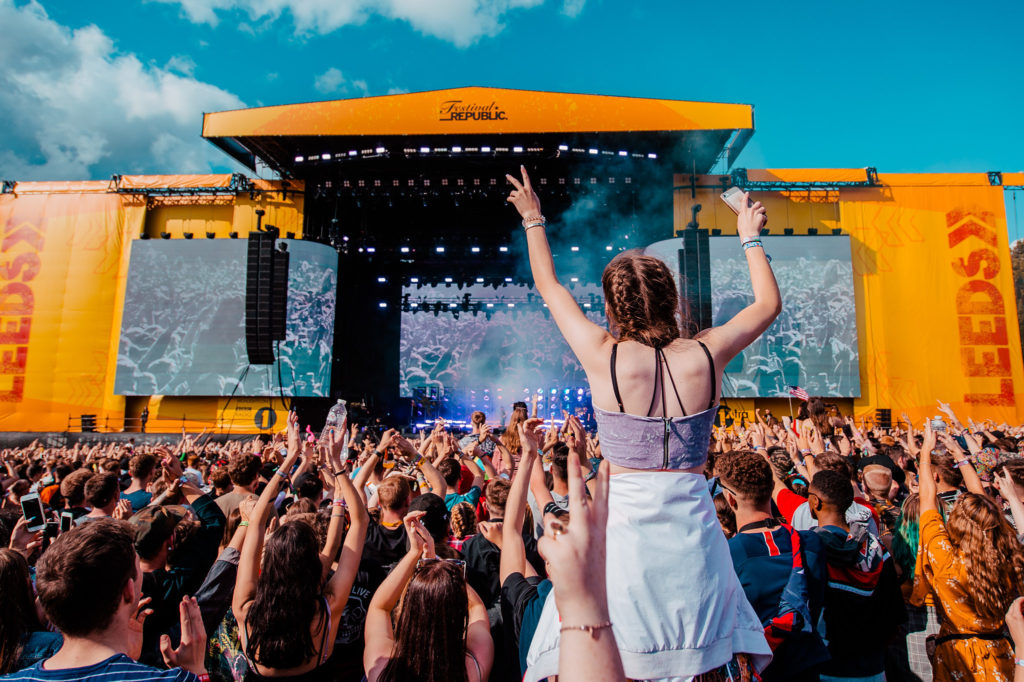It is not an opinion that the music industry is heavily skewed towards supporting only male musicians; 80% of festival headline slots are given to men, and most festival teams seem to be in no hurry to straighten out this issue.
Neighbourhood Weekender has pulled out Ian Brown and Catfish and the Bottlemen as their main headliners, with Sam Fender and The Wombats joining them. The issue is already obvious. The festival has long favoured male artists, choosing Courteeners, Jake Bugg, and George Ezra to headline in previous years. After multiple searches, tracing back to the festival’s very beginnings, it may be unsurprising to realise Neighbourhood has never had a single female headliner. In previous years they have made way for countless, almost indistinguishable male acts, repeatedly bringing back men such as Gerry Cinnamon and The Charlatans. For female artists, however, the same cannot be said, as talented artists such as Bloxx are relegated to the very bottom of their rankings.

Reading and Leeds Festival have come under particularly heavy backlash, after they revealed their line-up earlier this month. Stormzy, Rage Against the Machine, and Liam Gallagher are set to headline, meaning the festival has not seen a single headline slot given to a female artist since Paramore in 2014. In twenty years, there has been exactly one female headliner, whilst many male-only acts have headlined numerous times; Kasabian, Eminem, and Fall Out Boy to name just a few. Surely even Fall Out Boy fans are tired of seeing their name come up again and again, alongside heritage bands who have long ceased to be exciting?
Many (men) have come forward in defence of the festival line-ups, arguing that this is a result of the simple fact that there are more male artists in the indie/rock scene, or that there are just no good female artists that would be fit for the main stage. But looking at the first argument, you would have to question just why so many nearly identical male bands are being pushed towards fame and success, whilst female artists are given no such support. There are many popular bands whose repetitive, unoriginal songs prove that this inclusion is not a matter of objectively-judged talent, but a conscious and discriminative decision, from the booking agents of Reading and Leeds to the very roots of the music industry itself.

And for the second argument, which sees fans argue that there are no appropriate acts to play such festivals, one must question if they are being wilfully ignorant of talented female artists, or simply not being exposed to them due to the heavily patriarchal system that has long dictated the success of artists in the industry. Lorde, Lana Del Rey, Pale Waves, Stevie Nicks, and Florence and the Machine would all easily slot right into the main-stage slots, and yet the agents continuously throw money towards the Gallaghers instead. Furthermore, there are rising bands such as The Rooves who are female fronted, original, and hugely talented, and yet not being promoted nearly as heavily as the Courteeners-style bands we have seen dominating line-ups year upon year.
Primavera Sound, a Barcelona based festival, has proved the idea of gender-equality in festivals is not a ridiculous idea, but rather quite easily feasible. Featuring a line-up of Lizzo, FKA Twigs, and Charli XCX, the organisers made clear that there was no room for excuses. Hopefully, other festivals will quickly follow suit, and music fans will begin to demand equality of representation as a new normal in the following years to come.
Header Image: Matt Euchus

